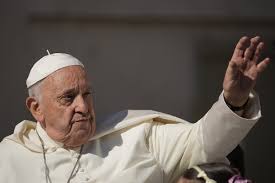Pope Francis has made an urgent appeal to members of the G20, the group of world leaders of the world’s major economies such as the United States, Germany, France, China, Japan and the United Kingdom, among others, to unite in the fight against the huger crisis and poverty in a message to Luiz Inácio “Lula” da Silva, President of Brazil and host of the G20 summit in Rio de Janeiro on 18 and 19 November.
The Holy Father recalled what was written in his encyclical Fratelli Tutti, regarding the “scandal” of hunger and the waste of food that could be destined for the poorest.
In the text read in Rio by Cardinal Pietro Parolin, Vatican Secretary of State, the Pope referred to various “pressures” against the international system, such as wars, terrorism and “assertive foreign policies”, in the face of which the members of the G20 must seek “new ways to achieve stable and lasting peace in all areas related to conflicts, to restore the dignity of those affected”.
After referring to the paradox that “more than 3 billion people lack access to a nutritious diet” and that “almost 2 billion individuals are overweight or obese,” the Holy Father warned that “usury and greed” provoke famine and death, and “ indirectly commit homicide” (cf. Catechism of the Catholic Church, 2269).”
The Pontiff stressed that “no effort must be spared to lift people out of poverty and hunger.” “It is important to bear in mind that the problem of hunger is not simply a question of insufficient food, but rather a consequence of broader social and economic injustices,” he continued.
The Holy Father stressed the importance of “recognizing the significant amount of food that is wasted every day.”
“Tackling food waste is a challenge that requires collective action. In this way, resources can be redirected towards investments that help the poor and hungry meet their basic needs.”
“I am hopeful that the Global Partnership against Hunger and Poverty can have a significant impact on global efforts to combat hunger and poverty,” he added.
In the fight against hunger, Pope Francis said, “local communities and the cultural and traditional wealth of peoples cannot be disregarded or destroyed in the name of a narrow and short-sighted concept of progress.”
“Doing so would actually run the risk of becoming synonymous with ‘ideological colonization,’” he said.
In the final part of his speech, Pope Francis recalled that “the Holy See will continue to promote human dignity and make its specific contribution to the common good, offering the experience and commitment of Catholic institutions throughout the world, so that in our world no human being, as a person loved by God, is deprived of daily bread.”



